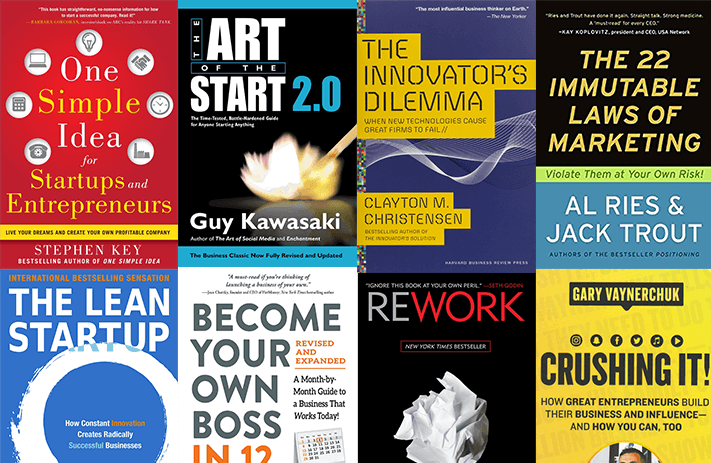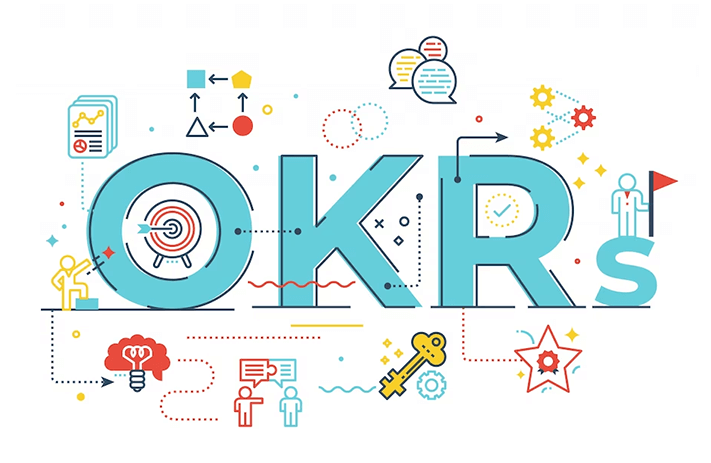
Click the button to start reading
7 Things to Quickly Overcome the Imposter Syndrome
Have you ever felt like you don’t really deserve your achievements? Or maybe that you just got lucky to be in the position you’re in today? Oh, here’s another one—perhaps you’re afraid that your colleagues will find out that you’re an imposter enjoying the benefits of an unfairly earned role? These are common signs of imposter syndrome kicking in.
And before you get too worried about it, we want to underline that it’s not technically a syndrome—it’s a psychological pattern, which means that it’s fairly easy to deal with.
Today’s blog postis all about identifying and exploring this bias. We’ll look into its most common symptoms, the people that are most susceptible to it, as well as an array of techniques to help you manage it effortlessly.
Let’s dive right in, shall we?
Imposter syndrome—the symptoms
The truth is that imposter syndrome can manifest in different people in different ways. Here are a couple of widely known symptoms suggesting that you may be suffering from this psychological pattern:
- You feel like a fraud—you’ve landed a great job, you’ve received praise for your work, you may have even been awarded for your success, but instead of feeling happy, you feel like you’re part of a great conspiracy. You feel like none of your achievements are earned through merit; it’s all just a sham.
- You discredit your worth—you helped someone, provided them with a valuable service or guidance, but you refuse to receive praise or money for it.
You have little to no confidence in your abilities or expertise—you’ve worked hard to learn and get better at what you do, but you refuse to see the value in your knowledge and skills.

Imposter syndrome—the people
It’s essential to underline that all people can be subject to this inability to internalize their success, regardless of gender or race.
Valerie Young, an expert on the imposter syndrome, outlined five archetypes for people suffering from this self-directed bias in her book, The Secret Thoughts of Successful Women:
- Perfectionists—people who set their standards extremely high and occasionally fail to deliver on their expectations. Despite typically being high performers and successful professionals, every failure for them feels like a personal disaster that ends up wiping out any inkling of confidence and self-worth.
- Experts—the people that are extremely passionate about learning and constantly expanding their skill sets. They hold themselves to a very high standard and typically won’t apply for a job if they don’t meet all the criteria in the job description. People that are part of this archetype are often uncomfortable asking questions in public in fear of being perceived as ignorant.
- Natural geniuses—they’re gifted individuals that are used to learning and doing things with ease. However, when a task demands extra effort, they often feel like an imposter and feel shame if they haven’t achieved it effortlessly.
- Soloists—people who fall into this category care a lot about who performed a task, sometimes more than how it was performed. They feel a constant urge to do things alone and are often ashamed of asking for help.
Supermen or superwomen—they feel the urge to constantly push their boundaries to prove to themselves that they are not imposters. To them, it’s imperative to be successful in all facets of life.
However, you don’t necessarily have to identify with one of these archetypes to experience the imposter syndrome. Fundamentally, we should keep in mind that this is a behavior pattern, and every single person can fall prey to it when they least expect it. Don’t believe it? What if we told you that even extremely successful people such as Tina Fey, Tom Hanks, Maya Angelou, and Michelle Obama have had to deal with imposter syndrome at a certain point in the past?
“No matter what we’ve done, there comes the point where you think, ‘How did I get here? When are they going to discover that I am, in fact, a fraud and take everything away from me?’” — Tom Hanks.

How do I deal with imposter syndrome?
Now that we have a better idea of the ways this pattern can manifest itself, we can explore a variety of things that can help us manage it. More importantly, some of the recommendations below will help you learn more from your experiences and use them as a source of better self-understanding.
1. Start with a reality check
The first step you should take is to scrutinize your negative thoughts just as harshly as you scrutinize your own worth when these thoughts arise. You know, those thoughts that make you believe your coworkers think you’re a fraud, and that you deserve none of your accomplishments.
Before you let these ideas have any impact on you, recognize them as ideas and think of the reason they came to your mind. Take a step back and assess whether there’s any reason to take them seriously.
It’s also important to keep in mind that our emotional state can significantly affect the way we think and feel. Often, the anxiety associated with starting a challenging project can manifest as self-doubt.
Whenever you feel this way about an upcoming challenge, remain mindful of the fact that this is just the way your brain reacts to it. You are the same knowledgeable and valuable person in your team—and nobody can take that away from you.
2. Reach out
Another fairly simple way of dealing with imposter syndrome is to open up to a friend. It’s essential to surround yourself with people that are there to help you when self-doubt strikes. Getting the support that you need in these situations is paramount.
Also, consider opening up to a colleague you trust. If your self-doubt is work-related, they should have a better understanding of your field, as well as how hard you’ve worked to earn your accomplishments.
3. Keep track of your achievements
Reminding ourselves of our achievements isn’t really something we learn to do at work. On the contrary, we’re often too focused on the things we mess up.
Consider creating a list of achievements and skills that you’re particularly proud of, the things that make you a valuable part of your organization—things that make you irreplaceable.
If you want to take this a step further, consider creating a work journal. This practice has a wide array of benefits that range from improved creativity and confidence to reduced stress.

4. Accept that you’re human
One of the things that foster professional self-doubt is perfectionism and overworking. While there’s nothing wrong with holding yourself to a high standard, it should be practiced in moderation.
To continue being a valuable part of your collective, it’s essential to maintain both your physical and mental health in check. Nobody wins if you end up burning out in the middle of an important project.
Your goal is to accept that you’re human and that you’re more than a cog in a machine. Sometimes, you simply can’t perform to the extent you’re expected to. And you know what? That’s totally fine.
Make an effort to steer clear of the all-work-no-play paradigm. Take the time to practice self-acceptance and self-compassion—and make sure not to feel guilty while doing so. Think of it as an investment in your future productivity.
5. Choose confidence
Being confident isn’t something you’re born with—it’s a mood, it’s a belief that you can succeed in what you’ve set out to achieve. Choose to believe in yourself.
Do small things that will help you revamp your self-confidence—volunteer your expertise, help your colleagues, do whatever it takes to make yourself believe that you’re a knowledgeable and valuable professional.
6. Say your name aloud
Yes, talking to yourself in a supportive and affirmative manner is extremely helpful. And before you brush this off as weird, there’s a huge body of research that supports this claim. A study published in the Journal of Personality and Social Psychology called “Self-Talk as a Regulatory Mechanism: How You Do It Matters” suggests that positive self-talk influences a person’s ability to manage their thoughts and feelings during stressful periods—this also includes people that are very vulnerable to social anxiety.
There are so many kind things you can tell yourself. Give it a try and see what works best for you. Anything goes. At the end of the day, you’re only saying these affirmations to yourself. Plus, it’s okay to do unconventional things in the privacy of your own self, especially if they help you feel better.
Need a couple of suggestions? Try these for starters, and feel free to tailor them to your individual needs:
- “I’m a valuable asset to my team.”
- “I’ve earned my accomplishments, and nobody can take them away from me.”
- “I know what I’m doing.”
- “I may make mistakes once in a while, but that doesn’t discount my worth.”
Oh, and don’t forget to add your name to these affirmations. Practicing this regularly will alleviate some of the effects of your imposter syndrome and help you manage it more efficiently.
7. Don’t compare yourself to others
Comparing yourself to others seems like a natural thing to do, especially due to our extensive use of social media.
Most of us will, at a certain point, feel like all of the people around us have it together more than we do. Well, we’re going to state the obvious—it’s not true. If other people’s LinkedIn profiles make you feel like an imposter, don’t fall for it. It’s a game of smoke and mirrors. People’s social media presence will almost never give you the full picture of how a person is really doing.
Whenever you realize that you’re comparing yourself to someone else, remind yourself that you only see what they want you to see. Everyone, absolutely everyone, feels vulnerable at a certain point in their lives. Everyone will, at some point, be consumed by self-doubt.
Imposter syndrome isn’t just about your self-confidence. It’s also about the way you evaluate yourself—and comparing yourself to others is beyond unhelpful and unproductive. As we mentioned above, setting the right standards is critical in dealing with self-doubt.
The take-home message
Opening up about your self-doubt isn’t easy. To many, admitting that they feel as if they don’t deserve their accomplishments is an arduous task, which makes getting help extremely complicated. The first step towards getting better is being honest with yourself. The second step is to share it with a person that you trust.
The modern workplace has created a culture that values overachievers. Yet, the same culture does very little to create a safe, healthy, and open environment where people can speak out about their problems. As a result, people have no choice but to suffer in silence and often disregard their own wellbeing.
Instead of being ashamed of how we feel and glorifying burning out, let’s focus on accepting ourselves and moving forward with a healthier attitude toward our own worth.
















